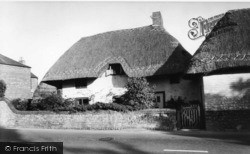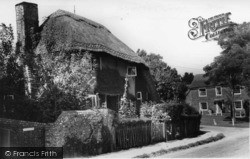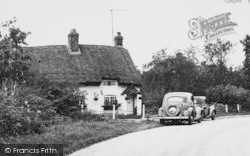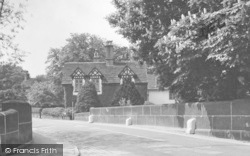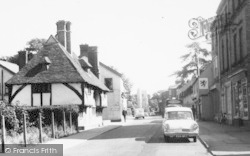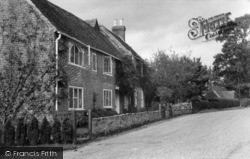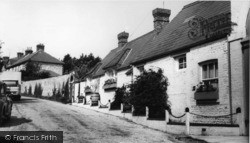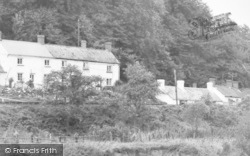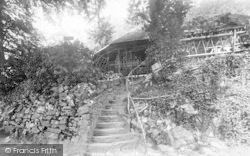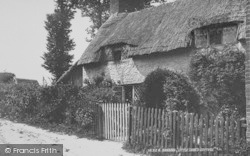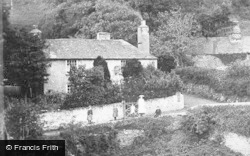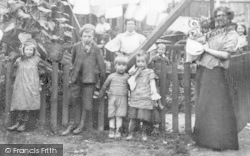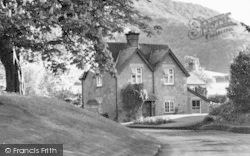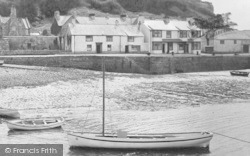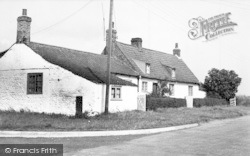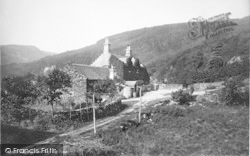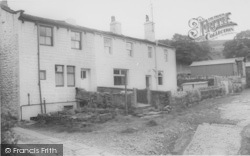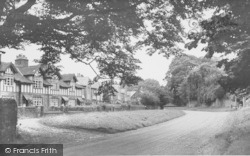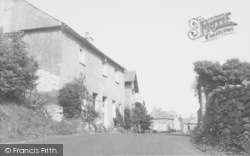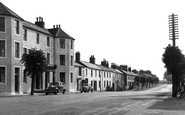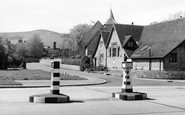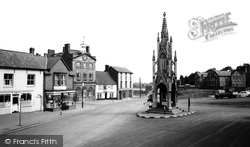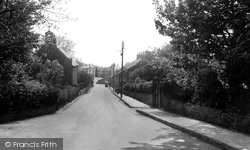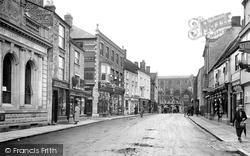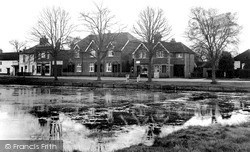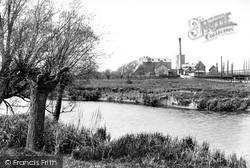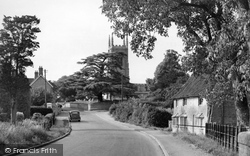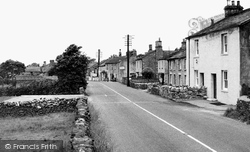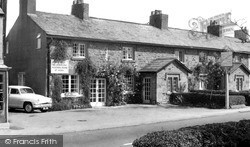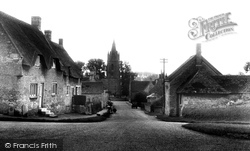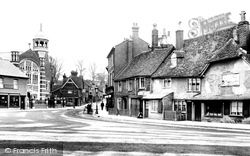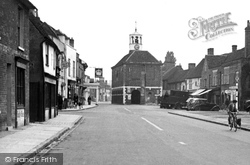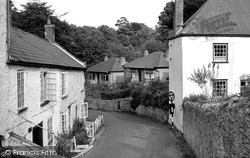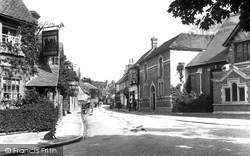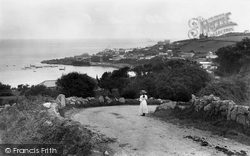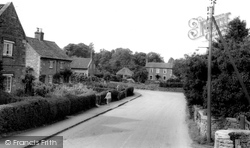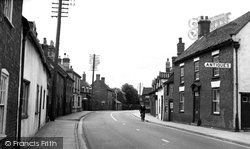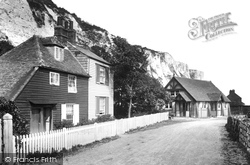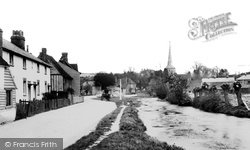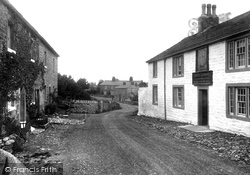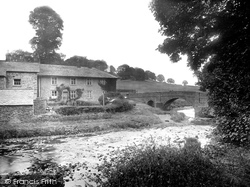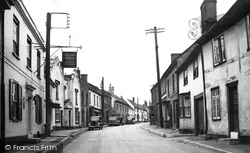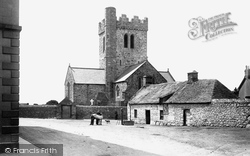Places
6 places found.
Those places high-lighted have photos. All locations may have maps, books and memories.
Photos
2,208 photos found. Showing results 1,461 to 1,480.
Maps
41 maps found.
Books
Sorry, no books were found that related to your search.
Memories
2,827 memories found. Showing results 731 to 740.
Church Road Corner, East Wittering
I moved to East Wittering in 1966 and worked in the area for the next 20 years. The two cottages on the left were originally the village post office but have long since been demolished although a local ...Read more
A memory of East Wittering in 1966 by
Old Bakery High Street
I'd be interested to know more about the Old Bakery on the High Street - I believe my great-grandfather, Arthur Brown, worked there at some point. The Brown family lived at 5 Rose Cottages, Station Road and also at 6 Foley ...Read more
A memory of Claygate by
The Love Family
My grandfather William Love was born at the cottage attached to the butcher and slaughterhouse at the foot of Love Lane. This Lane was named after his father (my great-grandfather). William Love worked at the Moore's bakery for ...Read more
A memory of Morcombelake in 1880 by
Longtown High Street
My great-great grandfather was George 'Dood' McKie and he lived in a house about six doors beyond the Graham Arms Hotel which is shown in the Francis Frith photo number L203002. He was one of those Longtown characters who are ...Read more
A memory of Longtown in 1880 by
White Horse Cottages
Just wondered if anyone could help me please. We live in Old Harlow and have recently been looking into the history of Harlow and where we live. We were wondering if anyone has any memories or photos, or just any information at ...Read more
A memory of Harlow by
Chingford Hatch
Does anyone remember the Manor pub at the bottom of Friday Hill? It was replaced by the Wheelwrights some years later, there used to be a van selling teas and coffees to the bus drivers and conducters in their breaks at the bus ...Read more
A memory of Chingford in 1957 by
My Grandparents And Visits To Them
My grandparents William and Amelia Love lived in Ryall. My grandmother purchased the cottage they lived in on her marriage. They had three sons Wilfred, Howard and Edward. My father Howard died in 2007. I ...Read more
A memory of Ryall in 1957 by
Summer Days
It was a happy childhood, I was born in Etwall in 1954 and our council house in Windmill Road is still our family home. Some of my fondest memories are the simple pleasures of life as a young lad in the 1950/60s. Always keen to get home ...Read more
A memory of Etwall in 1963 by
Willingdon Childhood
I was born and raised in Willingdon and lived two doors away from the previous correspondent Ian Friend. I also attended the school referred to as Willingdon Church Hall before a new school was built in Rapsons(?) Road, ...Read more
A memory of Willingdon by
Grandad Dudley
My Grandma and Grandad lived in a tied cottage in Budby, and I spent many happy times there when I was a little girl. Grandad Dudley was a cabinet maker at Thoresby Hall, and I was given a lovely little music chair by Lord Manvers, but ...Read more
A memory of Budby in 1940 by
Captions
2,010 captions found. Showing results 1,753 to 1,776.
It is looking sadly isolated, especially now that the backdrop of cottages has disappeared.
It is flanked on the right by a row of very old stone cottages that appear to lean to one side but nevertheless stand to this day - no doubt a testament to those who built them!
At the north end of the High Street stands the 15th-century market cross, with Malmesbury Cottage Hospital and the abbey in the background.
Many cottages carry plaques with the 'P' of Lord Pirbright, the village developer and estate owner. The trees, the bench and the post office remain.
The Pest House was built c1622 by the churchwardens and overseers as a cottage for the poor on land given by Julian Smith, a linen draper.
However, surviving almost unchanged are the Mill House and on the right Mill Cottage, built in 1851.
(Vicky Higgin) Clarence Cottage to the right is 18th-century, but Adelaide Cottage to the left is early 19th-century; at one time the two were adjoined as a common house.
The cottage on the right has been replaced by a stone bungalow further back from the roadside.
A commemorative tablet is on the wall of Bronte Cottage, the first house on the right next to the old road bridge.
Most of these cottages were built at the turn of the 19th century, when stops at Robinson's Tea Rooms were part of the popular wagonette trips.
Unchanging, though, is St Botolph's Church near the River Gwash as it watches over the limestone cottages.
Looking towards Blucher Street the old and admittedly somewhat run down cottages survived until Brandon's store replaced them in the 1930s, a three-storey white painted block at odds with everything
Hidden from this view until 1939 by Church Alley's cottages, the superb Market Hall was built in 1682 by Sir William Drake of Shardeloes.
The windows on the left, open wide in the glorious hot summer, are at Myrtle Cottage and Penrith House.
The village is a pleasing mixture of brick and flint thatched cottages.
Gently winds the lane down between stone banks towards this picturesque fishing village of whitewashed cottages and bright spring flowers.
Here we see several more of the local ironstone cottages with their well kept and productive gardens. There is a fine crop of runner beans in one garden as well as the usual flowers.
Here we look along the High Street, where most of the houses and cottages survive on the left but only No 62, then an antique shop, on the right.
These timber-clad cottages, standing at the foot of the white cliffs, are part of a small community which developed both as a bathing resort and as a residential quarter in the closing years
with the River Darent running through it and under the 15th-century humpbacked bridge (seen here behind the horse and cart) alongside a ford; it possesses an assortment of Tudor brick and timbered cottages
The cottages on the left were a Mission Room before the church of St Catherine was built in 1898.
Uphill from the bridge are stone cottages. The Black Bull Inn became the Youth Hostel, and the Dog Inn is now the Hark to Bounty.
The adjoining Victoria Cottage with round-topped windows is dated 1839. Commerce House was Kingsbury's the builders, established in 1730.
The area in front of a church was often treated as a public place, here, two boys lead a pony to drink at the pump and atering trough beside a traditional stone cottage.
Places (6)
Photos (2208)
Memories (2827)
Books (0)
Maps (41)


